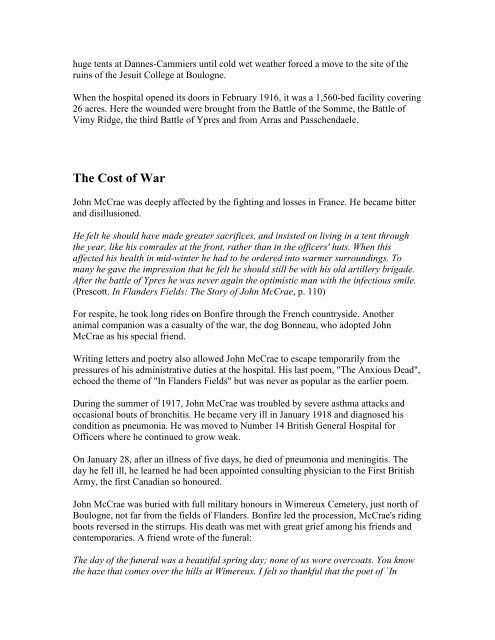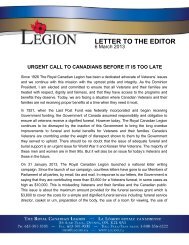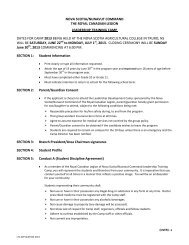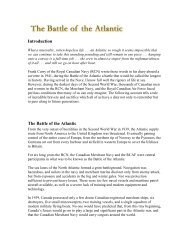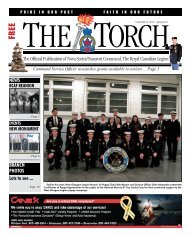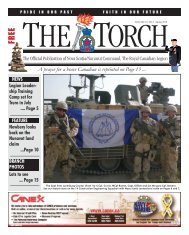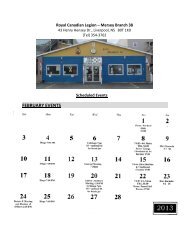Lieutenant Colonel John McCrae - Royal Canadian Legion
Lieutenant Colonel John McCrae - Royal Canadian Legion
Lieutenant Colonel John McCrae - Royal Canadian Legion
- No tags were found...
Create successful ePaper yourself
Turn your PDF publications into a flip-book with our unique Google optimized e-Paper software.
huge tents at Dannes-Cammiers until cold wet weather forced a move to the site of theruins of the Jesuit College at Boulogne.When the hospital opened its doors in February 1916, it was a 1,560-bed facility covering26 acres. Here the wounded were brought from the Battle of the Somme, the Battle ofVimy Ridge, the third Battle of Ypres and from Arras and Passchendaele.The Cost of War<strong>John</strong> <strong>McCrae</strong> was deeply affected by the fighting and losses in France. He became bitterand disillusioned.He felt he should have made greater sacrifices, and insisted on living in a tent throughthe year, like his comrades at the front, rather than in the officers' huts. When thisaffected his health in mid-winter he had to be ordered into warmer surroundings. Tomany he gave the impression that he felt he should still be with his old artillery brigade.After the battle of Ypres he was never again the optimistic man with the infectious smile.(Prescott. In Flanders Fields: The Story of <strong>John</strong> <strong>McCrae</strong>, p. 110)For respite, he took long rides on Bonfire through the French countryside. Anotheranimal companion was a casualty of the war, the dog Bonneau, who adopted <strong>John</strong><strong>McCrae</strong> as his special friend.Writing letters and poetry also allowed <strong>John</strong> <strong>McCrae</strong> to escape temporarily from thepressures of his administrative duties at the hospital. His last poem, "The Anxious Dead",echoed the theme of "In Flanders Fields" but was never as popular as the earlier poem.During the summer of 1917, <strong>John</strong> <strong>McCrae</strong> was troubled by severe asthma attacks andoccasional bouts of bronchitis. He became very ill in January 1918 and diagnosed hiscondition as pneumonia. He was moved to Number 14 British General Hospital forOfficers where he continued to grow weak.On January 28, after an illness of five days, he died of pneumonia and meningitis. Theday he fell ill, he learned he had been appointed consulting physician to the First BritishArmy, the first <strong>Canadian</strong> so honoured.<strong>John</strong> <strong>McCrae</strong> was buried with full military honours in Wimereux Cemetery, just north ofBoulogne, not far from the fields of Flanders. Bonfire led the procession, <strong>McCrae</strong>'s ridingboots reversed in the stirrups. His death was met with great grief among his friends andcontemporaries. A friend wrote of the funeral:The day of the funeral was a beautiful spring day; none of us wore overcoats. You knowthe haze that comes over the hills at Wimereux. I felt so thankful that the poet of `In


